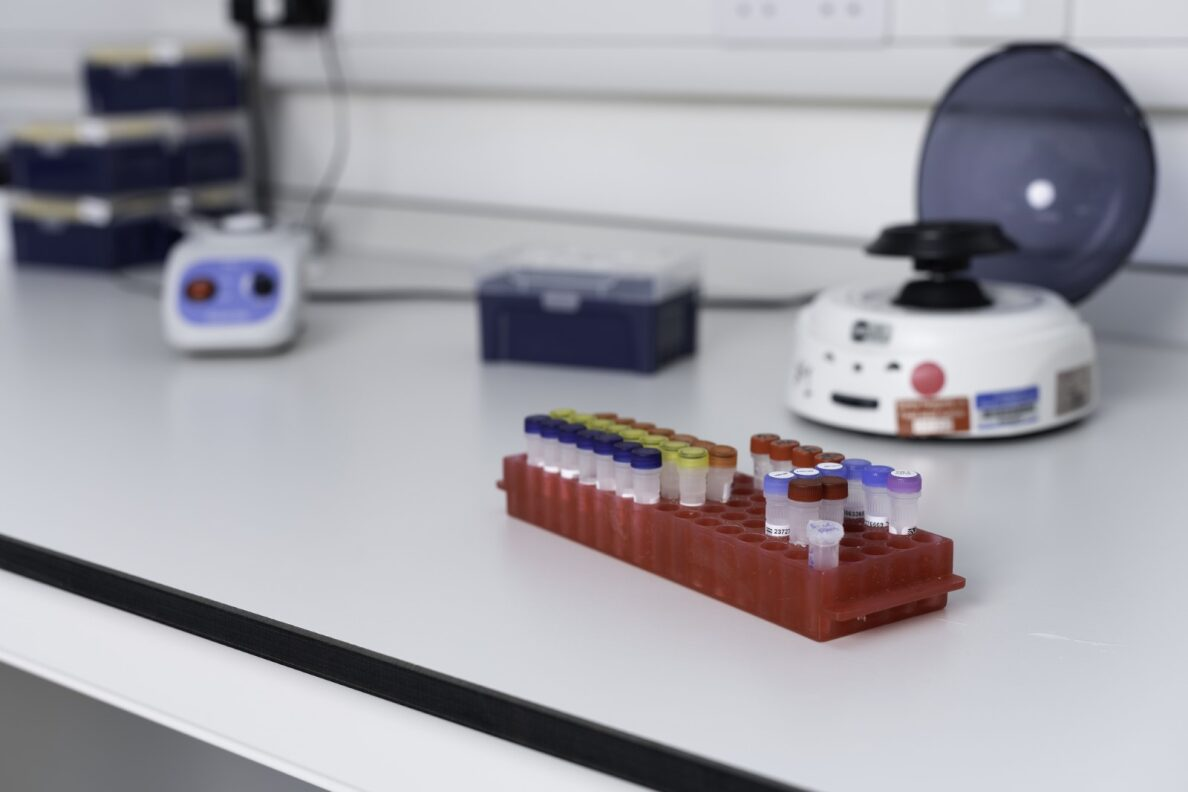
Molecular Reagents
产品包括PCR和RT-PCR酶,超纯dNTPs和为IVD检测开发和优化的 缓冲液。除此以外,迈迪安还为分子诊断制造商开发了一系列即用的解决方案。 其中包括可冻干的酶和预混液混合物,用于监控qPCR/RT-qPCR分析中抑制剂的提取和共纯化的内控,以及用于从粗裂解样本中直接进行qPCR检测的预混液。
找不到您想要的产品? 联系我们咨询
- Glycerol-free options, to eliminate the need for cold-chain shipping and storage.
- High-concentrated, to maximize sample input and increase sensitivity.
- Fast reaction kinetics for quicker time to results.
- Enzymes, buffers and pre-formulated master mixes.
Meridian has high-concentration, glycerol-free and lyo-ready enzyme and mixes, formulated for lyophilization or air-drying, for ambient temperature shipping and storage, extending shelf-life and increased flexibility in sample volume, internal quality controls to monitor extraction and co-purification of inhibitor in qPCR/RT-qPCR assays, as well as a unique mix designed for direct qPCR and LAMP from a variety of crude clinical specimens (e.g. blood, saliva, urine and stool).
可风干™ qPCR and RT-qPCR Mixes
可风干™ qPCR and RT-qPCR Mixes
产品资料
分子诊断的原料试剂解决方案分子诊断的原料试剂解决方案
开发常温稳定检测的分子试剂开发常温稳定检测的分子试剂
Glycerol is used with most enzymes as a cryoprotectant and stabilizer. The presence of glycerol prevents the formation of ice crystals during freezing that can damage enzymes. If glycerol is removed, it needs to be substituted with stabilizers and enhancers that will do the same job. Lyophilization and air drying on the other hand requires the enzyme to be stable at very low or very high temperatures and maintain their activity after the water molecules have been removed. This requires a different set of excipients that will protect the enzyme during this process. Glycerol-free enzymes do not have these excipients, and these will need to be added prior to lyophilization or air drying.
高浓度的酶有助于在干燥时减少体积,使过程更快,它们还可以减少微流控、卡壳和POC设备的反应体积,从而可以添加更多的样品。它们有助于优化并可以加快反应(只要有模板可结合),提高灵敏度和产率,因此,可以用于广泛的测定形式,从而在商业化过程中实现更大的开发灵活性和成本节约。
冻干是在真空中冷冻和升华,形成饼状或珠状,粘度非常低,可去除高达99%的水分。干燥通常需要 18-24 小时,并需要在冷冻过程中保护酶的低温赋形剂。试剂可冻干成珠状或饼状。
风干是在对流烘箱中加热,形成高粘度颗粒,去除约 95% 的水分。干燥过程通常不超过 2 小时,并且需要在较高温度下保护酶的热保护辅料。试剂可以风干成软粘稠状。
冻干和风干有助于延长产品的保质期,提高试剂在较高温度下的稳定性,并能方便、准确地分配试剂。干燥后,试剂很容易与样品材料重组。
是的,反应条件是相同的,产生的结果也是相同的,这意味着如果您不想干燥,可以使用液体混合物来创建 SOP,之后如果需要干燥(例如提高灵敏度),可以更新 SOP 以进行干燥,不需要编写全新的 SOP,但需要添加辅料。
在含有或不含有赋形剂、引物/探针的缓冲液中干燥后,大多数或我们的混合物在环境温度下至少可稳定 24 个月。重新水化后,检测的重现性、灵敏度和稳健性应与新制成的液体混合物相同。
No, our lyo-excipients are proprietary, if you require a buffer that contains lyo-excipients, we have the Lyo-Ready qPCR Buffer, 2.5x (MDX022).
联系我们的产品专家
想了解更多迈迪安免疫和分子产品信息?欢迎与我们联系